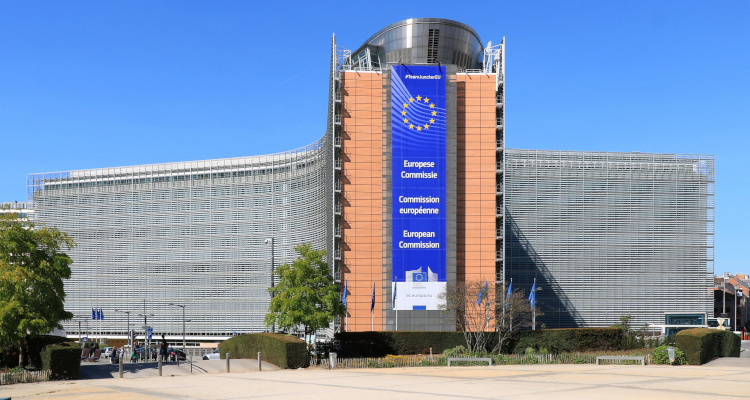Brussels’ Berlaymont building, which serves as the headquarters of the European Commission. Photo Credit: EmDee
Back in March of 2019, Spotify levied a European Union antitrust complaint against Apple over the 30 percent App Store fee that it charges certain developers for in-app transactions. Now, as EU officials have yet to hand down a ruling, Spotify CEO Daniel Ek has reportedly traveled to Brussels in an attempt to “accelerate” the process.
The 39-year-old Spotify head and co-founder just recently traveled to the EU’s Brussels headquarters to discuss the case’s progress, according to the Financial Times. As mentioned, Stockholm-based Spotify – which has long criticized the App Store’s developer fees, including via an all-encompassing “Time to Play Fair” campaign and a “Coalition for App Fairness” group – filed an EU complaint against Apple over three years ago.
June of 2020 saw the European Commission (the EU’s executive branch) respond by launching a pair of antitrust probes – one stemming from Spotify’s complaint, the other from a complaint submitted by Rakuten-owned e-book company Kobo – and it’s worth highlighting that Apple in November of the same year reduced App Store fees to 15 percent for developers that earn less than $1 million annually.
Needless to say, this group excludes Spotify, as the streaming giant pulled down close to $3 billion during 2022’s second quarter alone. April of 2021 saw the European Commission formally accuse Apple of distorting “competition in the music streaming market as it abused its dominant position for the distribution of music streaming apps through its App Store.”
“The Commission’s preliminary view is that Apple’s rules distort competition in the market for music streaming services by raising the costs of competing music streaming app developers. This in turn leads to higher prices for consumers for their in-app music subscriptions on iOS devices,” the EU Commission wrote.
Of course, Apple fired back against the development with a statement, indicating in part: “Spotify does not pay Apple any commission on over 99% of their subscribers, and only pays a 15% commission on those remaining subscribers that they acquired through the App Store. At the core of this case is Spotify’s demand they should be able to advertise alternative deals on their iOS app, a practice that no store in the world allows.”
(Spotify has rather predictably continued to take aim at Apple publicly, including by describing the company as a “ruthless bully” and likening the App Store to an “abusive power grab” amid a stateside antitrust battle. Additionally, Spotify maintained that a series of App Store concessions Apple made one year ago as part of a settlement with the Japan Fair Trade Commission didn’t go far enough in curbing allegedly anticompetitive practices.)
Now, with nearly 18 months having passed since the European Commission introduced the aforementioned accusations against Apple, Ek has personally visited Brussels to try and speed up the process, per statements he provided to the Financial Times.
While in Belgium’s capital city, Ek is said to have met with competition commissioner Margrethe Vestager, VP for values and transparency Věra Jourová, and the team of internal market commissioner Thierry Breton.
“I was asking [Vestager] what I can do to make sure this case moves faster,” Ek said in the FT interview. “As an entrepreneur you always want anything to happen yesterday. These regulatory processes take time so, so far, I guess [it’s] normal, but that doesn’t mean that one shouldn’t try to accelerate them or try to make more progress.
“I’m hoping [my communication with EU officials] raises the awareness and the attention on the agenda and that the priority becomes even higher,” the Stockholm native drove home, noting also that Vestager shares his frustration with the investigation’s pace.
Elsewhere during the brief sit down, Ek expressed support for EU regulatory measures like the Digital Markets Act and the Digital Services Act, but made clear his opinion that more sweeping laws are necessary given the rapidly evolving tech landscape.

